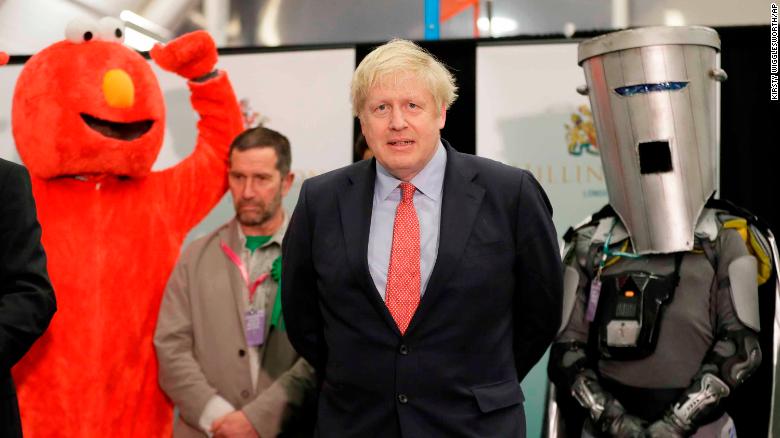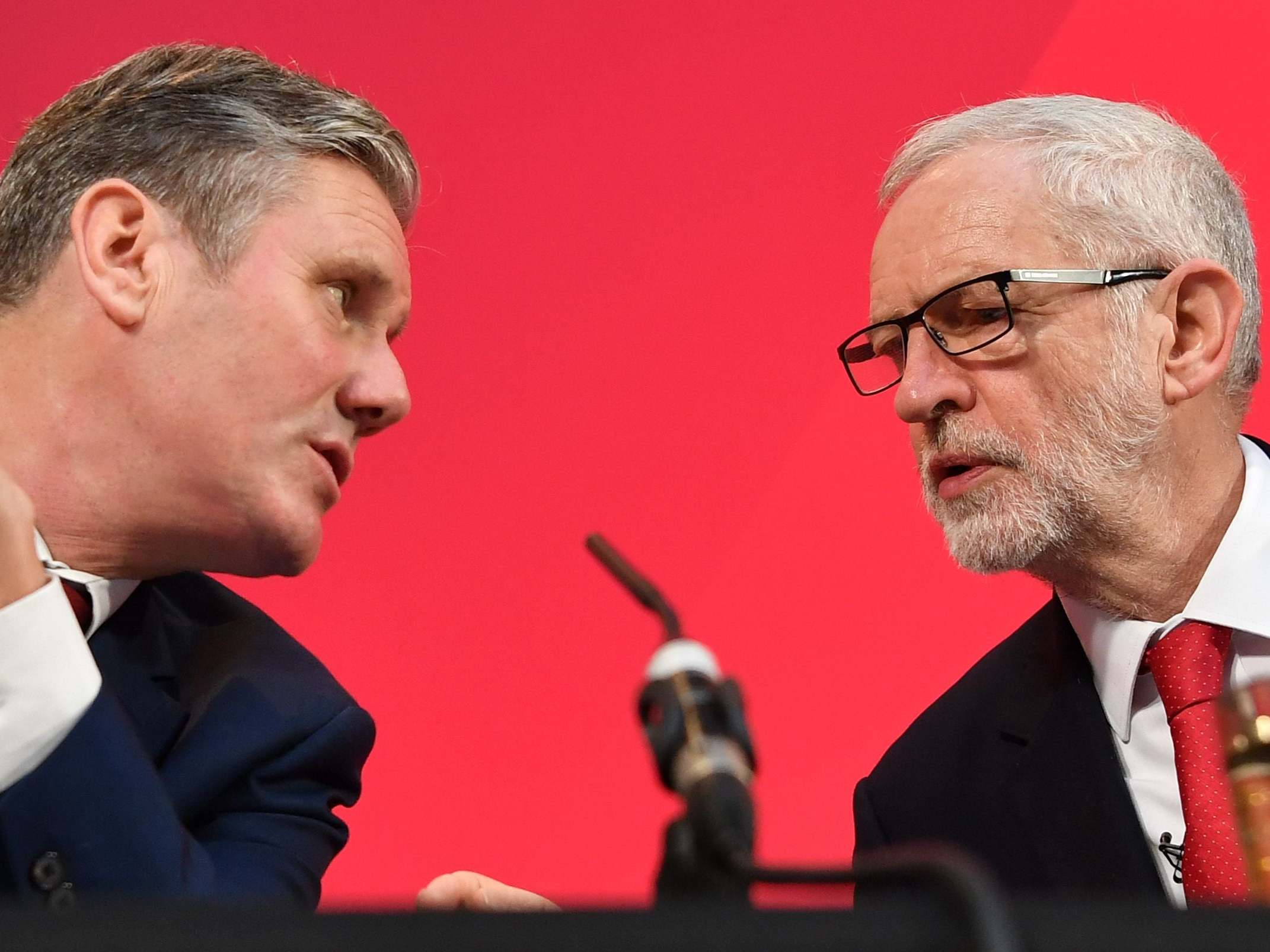 |
| Boris Johnson helps Tories win general election. But bigger challenges lay ahead (Image: CNN.com) |
This is the fourth general election I have been able to vote in and, quite honestly, the drama that comes with them are never easy to digest and reflect. As many, myself included, predicted the Conservatives and Labour to do as badly as each other, it's the former that stormed to a victory very few anticipated. It isn't the result I had in mind as we soon enter 2020 but somewhat surprisingly, I'm not even bothered by the result (I was immediately after the result, but I've done my reflecting since). In fact, if you look at it, a Tory majority had been coming for a while. They succeeded in 2015 and the 2017 general election was just a blip, now it seems. And as their opponents spent too much time second guessing and playing tactical, with the aim of trying to beat the Tories, the reality completely backfired on them.
Despite trying to get over the result, I remain downbeat about the entire election process. The campaigns from every party has made me cringe, roll my eyes and groan my way through the cold and wet autumn period. Across social media, print journalism and broadcast, the tone was toxic, from everyone. Ultimately, policies were secondary on voter's minds - it was a battle between Brexit and Corbyn. What does the nation truly want when it comes to Britain's membership with Europe? And what type of Prime Minister could Jeremy Corbyn be; an 'anti-Semitic', 'IRA supporting' 'Marxist', a 'man of the people' that can unite the nation with fabulous freebies, or possibly both?
By 9.59pm on election night, if I was to judge on social media alone, I'd have confidently thought Labour will have won by an absolute landslide. Literally one minute later, the moment the exit poll revealed what eventually happened, members of the pro-Corbyn/Labour brigade instantly turned their backs on him. It seemed as if in a matter of seconds, he went from being one of the most respected and yet hated men in Britain, to the most despised man in the country.
Yes, Labour's performance was equivalent to a 0-100 defeat in rugby union. Voters, including myself, was hoping for the Party to at least match its 2017 outing. But clearly, millions were frightened of the prospect of an 'anti-Semitic, IRA supporting Marxist man of the people' and instead preferred (up to) five more years of a Conservative government. Unlike many, I don't blame Corbyn solely for Labour's loss. His leadership is just an element to a lot of issues that Labour face - remember, he is the third Labour leader to have lost a general election this decade. Nobody has attacked Gordon Brown and Ed Miliband the same way. The abuse aimed towards Corbyn isn't justified and I can see why he is reluctant to let go of being leader. It isn't easy to lose and realise it is because people across the country despise you. He must be really hurting and while you may say 'Good', imagine if that happened to you or your loved one. I couldn't. You battle hard against racism and violence and then others insist you are a racist and endorse terrorists and that is therefore your legacy? Corbyn's head must be spinning.
 |
| SNP leader Nicola Sturgeon (Image: inews.co.uk) |
Undoubtedly, the comprehensive victory for the Conservatives and Boris Johnson will bring them a lot of joy and allow them to ensure the UK leaves the European Union on their terms, at least in the interim. The fun for them really stops there. With the election results gone the way they have, the next 12 months are critical for the Tories and Britain.
The Brexit process will reach the stage of the UK actually leaving the EU from 31st January 2020, but as the exit transition is set to end by December 2020, Johnson's number one priorities must go to Scotland and Northern Ireland. Members of the Scottish National Party (SNP) found themselves celebrating, having 48 MPs to ruffle feathers in Westminster. Their primary pledge of making Scotland an independent nation, and thus apply to be an EU member resonated with many Scots in this election - and with Nicola Sturgeon's constant battles against Johnson, talks of securing a second Scottish independence referendum in six years will be messy. I don't see any option but for Johnson to allow it, but only with the condition that independence can only happen if the 'Yes' campaign wins by a 20+ percent margin.
Meanwhile in Northern Ireland, the nation no longer has unionists holding the majority of seats. The nationalists now have the edge which could possess a rather unwelcomed challenge for Johnson, particularly as the Tories relied so much on the Democratic Unionist Party (DUP) in the past. He has new MPs with a different mind-set to be acquainted with, and he should spend the coming months prioritising on Stormont to unite and restore Parliament. And will he find a way for the unionists to support any EU trade deal, after having doubts about it before?
 |
| Sir Keir Starmer with Jeremy Corbyn (Image: The Independent) |
Finding a new Lib Dems leader will be tough but the prospect of Sir Ed Davey and Baroness Sal Brinton being co-leaders may be the Party's best bet for now as they seek to rebuild once again. Labour have more options however, they need to be careful. Corbyn offered a very different approach compared to his predecessors - and as a result the Party's membership is such a broad church, and proudly so. I strongly feel the next leader needs to appreciate the past and inspire every colleague to put Labour back in people's thoughts in a positive way. In my mind, either one of Emily Thornberry, Sir Keir Starmer, Stephen Kinnock or Yvette Cooper can offer this, if they allow themselves.
If there is one thing we've learned in this election, it is that the British public are an unapologetic bunch and could punish Johnson the same way they've done to Corbyn and the Labour Party, if the Tories don't deliver. Politics can be so unpredictable too and if, in the next 12 months, the Tories fail to agree a trade deal with the EU, the economy continues to stumble, the UK loses Scotland, make no progress with Northern Ireland and fail to ensure the disengaged towns prosper, then Johnson will struggle to win future elections.
Comments
Post a Comment